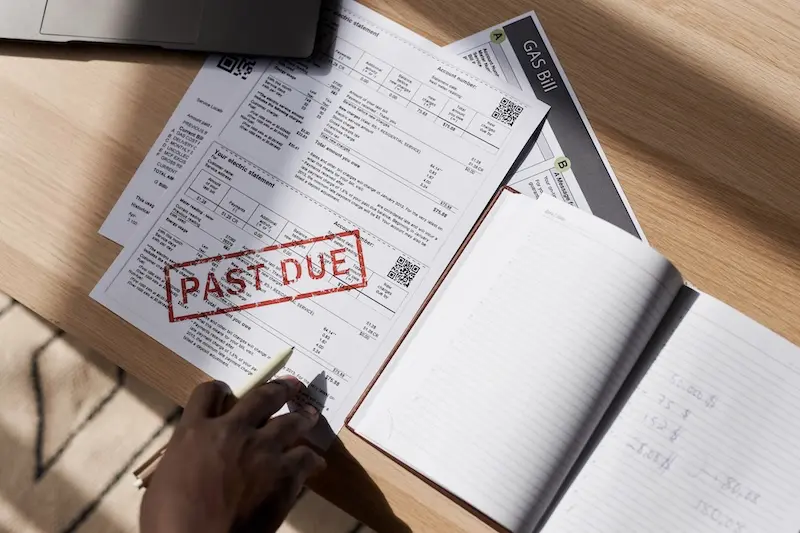For anyone struggling with unmanageable debt, enlisting the services of a Personal Insolvency Practitioner in Ireland (PIP) can be truly life-changing.
PIPs offer much more than a glimmer of hope in such times of stress and uncertainty. They provide a structured way to resolve debt, protect assets where possible, and help those in need to regain financial stability.
In this article, we explore what a PIP does, the qualifications they need, and what to expect when working with a registered PIP in Ireland today.
What is a personal insolvency practitioner in Ireland?
Having a debt problem is unfortunate but certainly not uncommon in Ireland today. In fact, according to a recent poll, 45% of those surveyed admitted to missing a bill or loan repayment in the previous three months. However, until you find yourself in a situation where you may need assistance with a debt problem, you might not actually know what a PIP is.
A personal insolvency practitioner is a licensed professional authorised by the Insolvency Service of Ireland (ISI) to help people restructure or resolve their personal debts through formal arrangements. Essentially, they act as a mediator between the debtor and creditors. A major aspect of their role is to help those in debt find a path towards financial stability through solutions such as:
- Personal Insolvency Arrangements (PIAs) – dealing with secured and unsecured debts, often including mortgages.
- Debt Settlement Arrangements (DSAs) – focusing on unsecured debts such as loans, credit cards, or overdrafts.
Being financially savvy, skilled at negotiating, an empathetic listener and keeping up to date with insolvency laws in Ireland, a PIP must wear many hats, so let’s look at the necessary qualifications in more detail.
What qualifications does a personal insolvency practitioner in Ireland need?
Becoming a PIP in Ireland requires intense training and certification. Typically, a PIP must:
- Be a qualified solicitor, barrister, accountant, or financial adviser with relevant experience.
- Complete specialist training through the ISI.
- Hold a licence issued by the ISI after demonstrating the necessary competence and integrity.
- Comply with ongoing professional standards and regulations, including completing the required continuous professional development hours as required by the ISI for a PIP, as well as outlined by the Law Society of Ireland for solicitors, or Chartered Accountants Ireland for accountants.
These qualifications ensure that debtors receive guidance from a practitioner who is both technically capable and accountable to statutory regulation.

What types of debt can a PIP help with?
In today’s world, debt can come knocking on your door in more ways than one: falling behind on your mortgage, struggling to make a credit card payment or a stack of unpaid utility bills. However, no matter what type of debt you may have, an experienced PIP can help you find a solution.
Here are the forms of personal debts that a PIP can assist with:
- Mortgage arrears and secured loans.
- Credit card debt.
- Personal loans and overdrafts.
- Utility bills and hire purchase agreements.
- Certain tax liabilities (depending on circumstances).
The type of arrangements recommended, be it a PIA or DSA mentioned above, depends on the scale of debt, income level, and the assets available.
How does a Personal Insolvency Practitioner in Ireland work with creditors?
Perhaps one of the most stressful aspects of being in debt is dealing with your creditors. This is where enlisting the services of a PIP is worth its weight in gold. Imagine the relief of having someone to communicate on your behalf with those you owe money to? That’s exactly what happens when you work with a PIP. No more avoiding phone calls or hiding from the postman.
This process of negotiation involves:
- Preparing a financial statement to present a clear picture of income, assets, and liabilities.
- Proposing a sustainable repayment plan under the relevant insolvency arrangement.
- Liaising with creditors to secure an agreement.
- Ensuring compliance with statutory rules so that agreements, once approved, are legally binding.
Simply handing over the reins to your chosen PIP removes much of the stress of dealing with constant creditor calls, letters, or threats of enforcement.
Can a PIP stop repossession of my home?
Quite simply, yes. In many cases, a PIP can put forward a Personal Insolvency Arrangement (PIA) specifically designed to address mortgage arrears. These arrangements often allow people to:
- Keep the family home by restructuring mortgage payments.
- Extend the mortgage term or adjust interest rates.
- Settle unsecured debts alongside the mortgage, making repayment more manageable.
Perhaps most importantly, once a PIA is in place, creditors are legally prevented from pursuing repossession as long as the debtor keeps to the terms of the arrangement. The knowledge that you can remain in your own home while you work towards financial stability can be hugely comforting.

What’s the difference between a PIP and a solicitor?
The key distinctions are:
- Solicitor – Provides broad legal advice and representation across many areas of law.
- PIP – Specialises exclusively in debt resolution under Ireland’s insolvency legislation.
For those facing complex financial and legal challenges, it’s certainly preferable to choose a PIP that can offer the best of both worlds: legal expertise and licensed PIP services.
How much does it cost to hire a Personal Insolvency Practitioner in Ireland?
If you’re already feeling the weight of financial pressure, it’s natural to wonder how you might afford help from a Personal Insolvency Practitioner. The good news is that PIP services in Ireland are typically designed with affordability in mind.
Fees may vary depending on the complexity of your case, but a qualified, experienced PIP will explain the cost structure clearly before any agreement is made. Transparency is key, and reputable practitioners will ensure you understand what’s involved before proceeding.
If financial concerns have been holding you back from seeking help, rest assured that cost should not be a barrier to getting the support you need.
How do I choose the right PIP for my situation?
Selecting the best PIP is just as important as deciding to seek assistance from one in the first place. Consider the following:
- Experience – Choose someone with a strong track record of successful arrangements.
- Accessibility – Look for a practitioner who will respond quickly and deal with you directly, not through call centres.
- Approachability – Debt problems can feel overwhelming, so choose someone who communicates in plain English and without judgment.
- Nationwide availability – Whether you’re based in a busy city or a rural part of the country, flexibility matters. Choose a PIP who has the resources to handle your case, regardless of your location.
If you can find a PIP who ticks all the boxes above, you are on the right track to financial freedom.
What happens in the first meeting with a Personal Insolvency Practitioner in Ireland?
Understandably, you may be feeling nervous ahead of your initial meeting with a PIP; however, you needn’t worry. Generally speaking, the first consultation will be focused solely on getting a clear picture of your current circumstances.
You can expect to:
- Provide details of your debts, income, and assets.
- Explain your priorities (such as keeping your home).
- Receive an outline of the possible options available to you.
- Gain clarity on the next steps without being pressured.
This meeting is confidential, supportive, and designed to give you peace of mind that solutions are available.

Are PIP services confidential?
Yes. Confidentiality is a cornerstone of the PIP role. Sensitive financial and personal information is handled with the utmost discretion, and discussions remain strictly between you, your PIP, and the relevant creditors.
There is certainly no shame in seeking help with a debt problem; however, most people prefer to keep their financial affairs to themselves. So you can get the assistance you need, safe in the knowledge that it stays private.
How long does the process take with a Personal Insolvency Practitioner in Ireland?
If you’ve been struggling with financial debt for some time, you may be eager for the situation to be resolved as soon as possible. However, patience is key when it comes to clearing your debts. There are different timeframes involved depending on the type of arrangement:
- A Debt Relief Notice organised through MABS can be processed in a matter of weeks
- Debt Settlement Arrangements and Personal Insolvency Arrangements usually take a few months from initial consultation to formal approval.
Once agreed, these arrangements can run for up to 5–6 years, but the average duration is 2 years, after which any remaining qualifying debt is written off.
What happens after a PIP arrangement ends?
When you are in the thick of it with financial woes, it can be difficult to imagine a day when you are finally free from your debt. But here’s what to expect when you do reach that day: at the end of the agreed term, provided you have kept to the arrangement, the debts included are legally written off.
This means:
- You emerge debt-free (except for any debts specifically excluded).
- You can begin rebuilding your financial life without the constant pressure of creditors.
- Your credit record may still reflect past difficulties, but the relief of being free from unaffordable debt will outweigh this.
While you can’t always walk away from debt completely unscathed, remember it is possible to start a new chapter of your life afresh without the burden of debt hanging over you.

Alan McGee & Co is your Personal Insolvency Practitioner in Ireland
If you are facing serious financial pressure, speaking to a PIP could be the most important step you take. At Alan McGee & Co., we will never treat our clients as simply numbers on a spreadsheet. When you call us, you will speak directly to an experienced solicitor and licensed PIP who understands the system inside out. And while we’re based in East Cork, we support clients all over Ireland with flexible consultation options.
We’ve helped over 600 people regain control; now it’s your turn
With over 600 Personal Insolvency Arrangements and thousands of legal cases completed, we know what works, and we care about outcomes that truly change lives. Whether you need to protect your home from repossession, reduce the pressure coming from your creditors, or find a pathway out of overwhelming debt, support is on hand by making one simple phone call.
Contact us today for a confidential consultation about your options.

